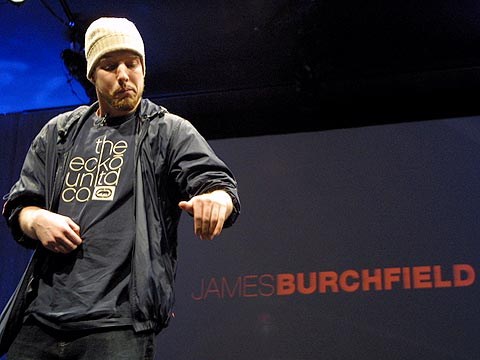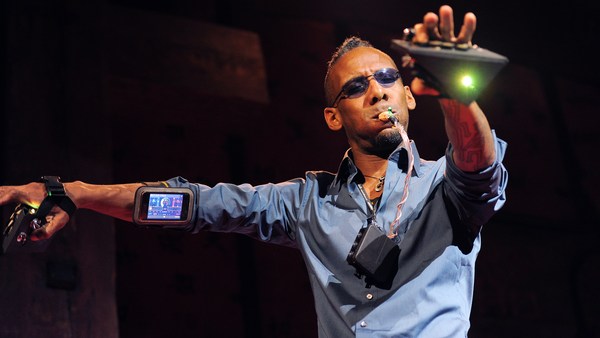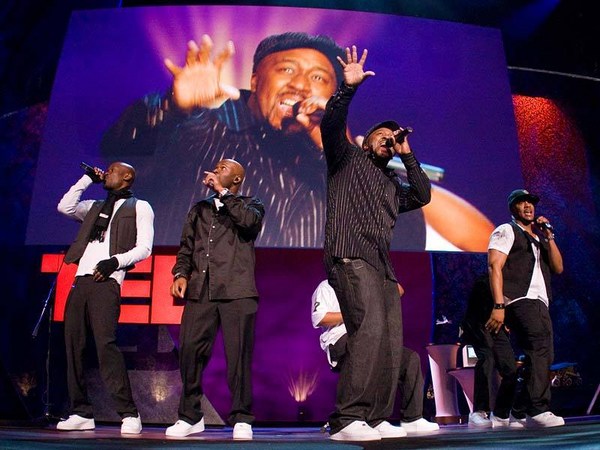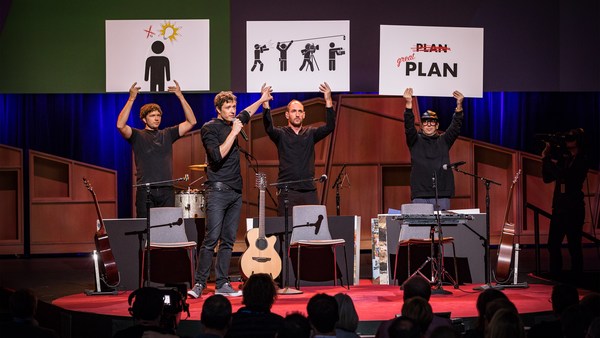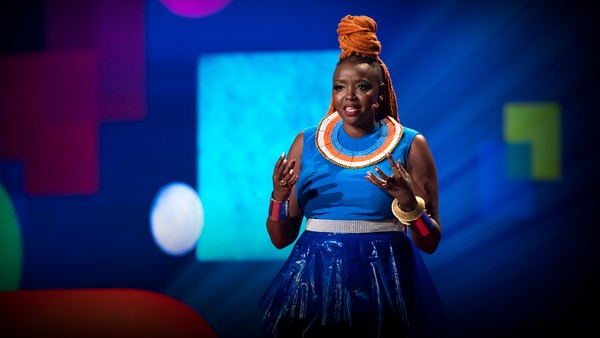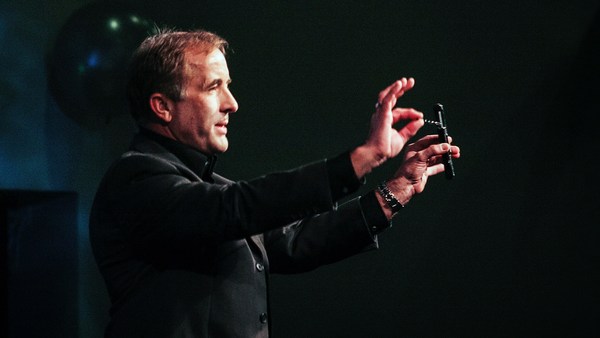(Non English)
(French) Mais Des fois on peut voir parce Que Les gens ici faire Des choses on peut manger.
(French) Mais quand tu es fâché avec quelqu'un c'est pas passé the first time.
(British English) And that's one of the things that I enjoy most about this convention. It's not so much, as so little has to do with what everything is.
(Laughter)
But it is within our self-interest to understand the topography of our lives unto ourselves.
(Laughter)
The future states that there is no time other than the collapsation of that sensation of the mirror of the memories in which we are living.
(Laughter)
Common knowledge, but important nonetheless.
(Laughter)
As we face fear in these times, and fear is all around us, we also have anti-fear. It's hard to imagine or measure. The background radiation is simply too static to be able to be seen under the normal spectral analysis.
(American accent) But we feel as though there are times when a lot of us -- you know what I'm saying? But -- you know what I'm saying? Because, as a hip hop thing, you know what I'm saying, TED be rocking -- you know what I'm saying. Like so I wrote a song, and I hope you guys dig it. It's a song about people and sasquatches --
(Laughter)
And other French science stuff. That's French science. Okay, here we go.
(Singing) I've been trying inside I know that I'm in trouble
(Applause)
that I'm in trouble by myself But every time it gets me
(Vocalization)
(Beatbox)
(Singing) And I've been trying to be the one that you believe in And you're the one that I want to be so saucy And you're the one I want to [unclear], baby And you can do anything as long as you don't get hurt along the way back
(Beatbox)
If I survive, I'm going to tell you what is wrong Because if you were [unclear] And I think that you're looking like a [unclear] I give you what I want to be
(Music)
(Music ends abruptly)
(British accent) And it's like, you could use as many of those things that you want.
(Applause) And the computer models, no matter how many that you have and how many people that you use, are never going to be able to arrive at the same conclusions. Four years ago I worked with a few people at the Brookings Institute, and I arrived at a conclusion.
(Laughter)
Tomorrow is another day.
(Laughter)
Not just any day, but it is a day. It will get here, there's no question.
And the important thing to remember is that this simulation is a good one. It's believable, it's tactile. You can reach out -- things are solid. You can move objects from one area to another. You can feel your body. You can say, "I'd like to go over to this location," and you can move this mass of molecules through the air over to another location, at will.
(Laughter)
That's something you live inside of every day. Now with the allocation and the understanding of the lack of understanding, we enter into a new era of science in which we feel nothing more than so much so as to say that those within themselves, comporary or non-comporary, will figuratively figure into the folding of our non-understanding and our partial understanding to the networks of which we all draw our source and conclusions from.
(Laughter)
So, as I say before the last piece, feel not as though it is a sphere we live on, rather an infinite plane which has the illusion of leading yourself back to the point of origin.
(Laughter)
Once we understand that all the spheres in the sky are just large infinite planes, it will be plain to see.
(Laughter)
(Audience) (Laughter)
This is my final piece. And just remember, everything you are -- it's more important to realize the negative space, as music is only the division of space; it is the space we are listening to divided as such, which gives us the information in comparison to something other that gives us the idea of what the idea that wants to be transmitted wants to be. So please, without further ado.
(Applause)
Thank you.
(Applause)
This is a fun one. It goes like this.
(Beatbox)
(Gibberish)
(Music ends)
Okay, for the last piece I'd like to do, this one goes very similar to this. I hope you guys recognize it. Here we go. Okay, that still works. Okay, good. All right, here we go.
(Laughter)
(Beatbox)
Here we go.
(Beatbox)
Yeah, yo, yo, yo
(Gibberish)
(Music fades out)
Thank you. Enjoy the rest.
(Applause)
